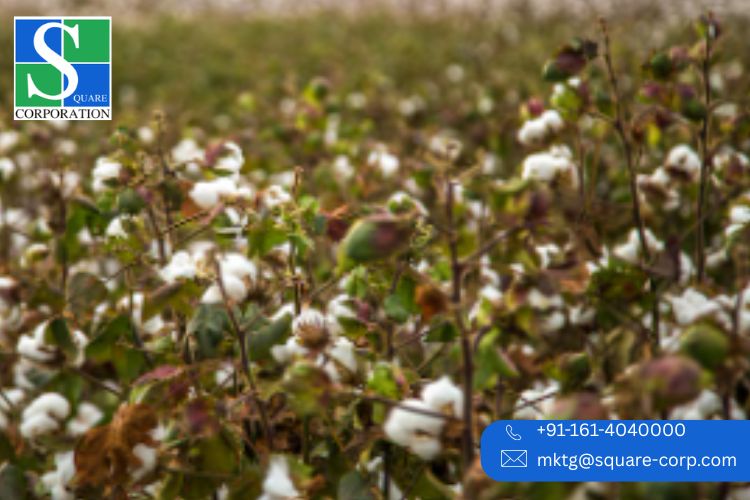What happens when tradition meets technology? You get Gujarat’s textile industry—where century-old craftsmanship merges with world-class innovation. The state’s modern, export-ready spinning mills are redefining how India supplies quality yarn to the world, led by trusted enterprises like Spinning mill in Gujarat.
The Legacy of Gujarat’s Textile Powerhouse
Gujarat has long been at the heart of India’s textile revolution. From the looms of Surat to the cotton fields of Rajkot, the region produces everything from fine cotton to technical textiles. Its strategic location, skilled workforce, and proximity to ports make it a natural hub for textile exports.
According to the Ministry of Textiles (texmin.nic.in), Gujarat contributes nearly 25% of India’s textile output and over 35% of its cotton manufacturing. This dominance is no accident—it’s the result of consistent innovation, government support, and a relentless focus on sustainability.
Why Gujarat’s Spinning Mills Stand Out Globally
Export-ready spinning mills from Gujarat are not just factories—they are ecosystems of precision engineering and sustainable practice. Their machinery integrates automation, advanced quality testing, and eco-efficient dyeing technologies that meet global standards like OEKO-TEX® and GOTS.
What Makes These Mills Export-Ready?
- Automated Spinning Lines: Computerized systems for consistency in yarn thickness and twist.
- Quality Assurance: International certifications and in-house labs for fiber testing.
- Eco-Conscious Production: Recycling water, using renewable energy, and sourcing from sustainable cotton farms.
From Cotton Fields to Global Markets
The journey of a yarn begins in Gujarat’s fertile plains, where cotton farmers grow some of the finest fibers in the world. These fibers are then processed in spinning mills equipped with advanced European and Japanese machinery. What emerges is high-grade yarn that powers textile industries across Asia, Europe, and North America.
In the midst of these advancements, Gujarat’s textile ecosystem also supports allied industries—like dyeing, weaving, and finishing—creating a seamless supply chain from fiber to fashion.
Product Range and Specialization
Many export-ready mills produce a diverse range of yarns, including combed, carded, compact, and blended varieties. Some, like Square Corporation, also focus on sustainability-driven products such as recycled and organic yarns, serving global eco-conscious brands.
For example, a reputed linen yarn manufacturer in Gujarat not only produces high-quality linen-cotton blends but also emphasizes low-impact dyeing and waste reduction—making it a model for responsible textile manufacturing.
The Sustainability Edge: Cotton to Cloth
A key part of Gujarat’s textile story is its shift toward ethical sourcing and sustainable production. Modern spinning mills partner with certified Organic Cotton Farms to ensure fibers are free from harmful chemicals and genetically modified seeds. This not only protects farmers but also enhances yarn quality for export markets.
Additionally, several mills collaborate with leading Fabric Suppliers in India, forming a vertically integrated ecosystem that ensures traceability—from seed to finished garment.
Global Recognition and Export Performance
- India’s yarn exports surpassed $4.5 billion in FY 2023, with Gujarat contributing a major share (commerce.gov.in).
- Major export destinations include Bangladesh, China, Turkey, and Vietnam.
- Many Gujarat-based mills have earned ISO 9001 and GOTS certifications, ensuring compliance with international standards.
FAQs: Export-Ready Spinning Mills from Gujarat
1. What makes Gujarat a preferred destination for spinning mills?
Its robust infrastructure, abundant cotton production, and skilled labor make Gujarat a top choice for textile manufacturers and exporters.
2. Do spinning mills in Gujarat follow sustainable practices?
Yes. Many mills use recycled fibers, renewable energy, and water-saving dyeing methods aligned with global sustainability goals.
3. Which types of yarns are commonly exported from Gujarat?
Exported products include cotton, polyester-cotton blends, compact yarn, linen yarn, and recycled fiber yarns.
4. How can foreign buyers collaborate with Gujarat-based mills?
Buyers can contact mills directly or through textile export councils, ensuring transparent trade under government-certified export programs.
Also Read: The Pros of Using Reprocessed Polyester: A Detailed Guide
Final Thoughts
Gujarat’s export-ready spinning mills are weaving more than yarn—they’re weaving India’s global textile legacy. With sustainability, quality, and innovation at their core, these mills prove that the future of fabric is not just local—it’s proudly global.
Blog development Credits:
This article was envisioned by Organic Cotton, researched and written using AI tools like ChatGPT, Google Gemini, and Copilot. SEO optimization and enhancements were executed by Digital Piloto Private Limited.



